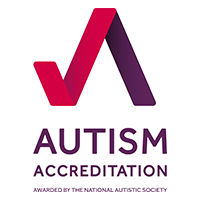Learning Support and Therapists
At Riverston School, we recognise and understand that every child has unique and sometimes very specific, learning needs which may become apparent at any point in that child’s educational ‘career’. Our goal is to identify and work with that child’s individual and specific learning needs and support their family in seeing their child reach their full potential and confidently develop and follow their ambitions.
Sometimes, this can be achieved simply through a more sensitive application of teaching strategies within the traditional school curriculum. For some children with greater or more complex needs, additional learning support will be required to ensure they can continue to participate fully in the life of the school, progress in their studies and continue to develop their knowledge, skills and abilities.
Riverston School provides outstanding expertise and support for these children and their families from our multi-disciplinary team offering in-depth assessment, diagnosis and therapy input as well as providing bespoke learning programmes. Our team includes speech and language therapists, occupational therapists, a counsellor, specialist teachers and learning support assistants.
Our speech and language therapist provides a wide range of input to children based on individual needs. Working 1:1, in pairs and small groups, this work can centre around the physical development of speech, developing receptive and expressive language skills and addressing specific individual speech and language difficulties. Our therapist also works with small groups to develop social communication skills, working on turn-taking, sharing, conversational skills, body and spatial awareness. Language acquisition and vocabulary finding techniques are an important aspect of this work as children develop their linguistic abilities to their full potential.
Our occupational therapist addresses difficulties with children’s fine motor skills, providing therapy and advice for developing handwriting and scissor control, as well as appropriate seating, positioning and posture. For a significant number, occupational therapy advice is provided to manage a variety of sensory challenges, learning to develop strategies to manage these difficulties not only in school but in the wider community.









